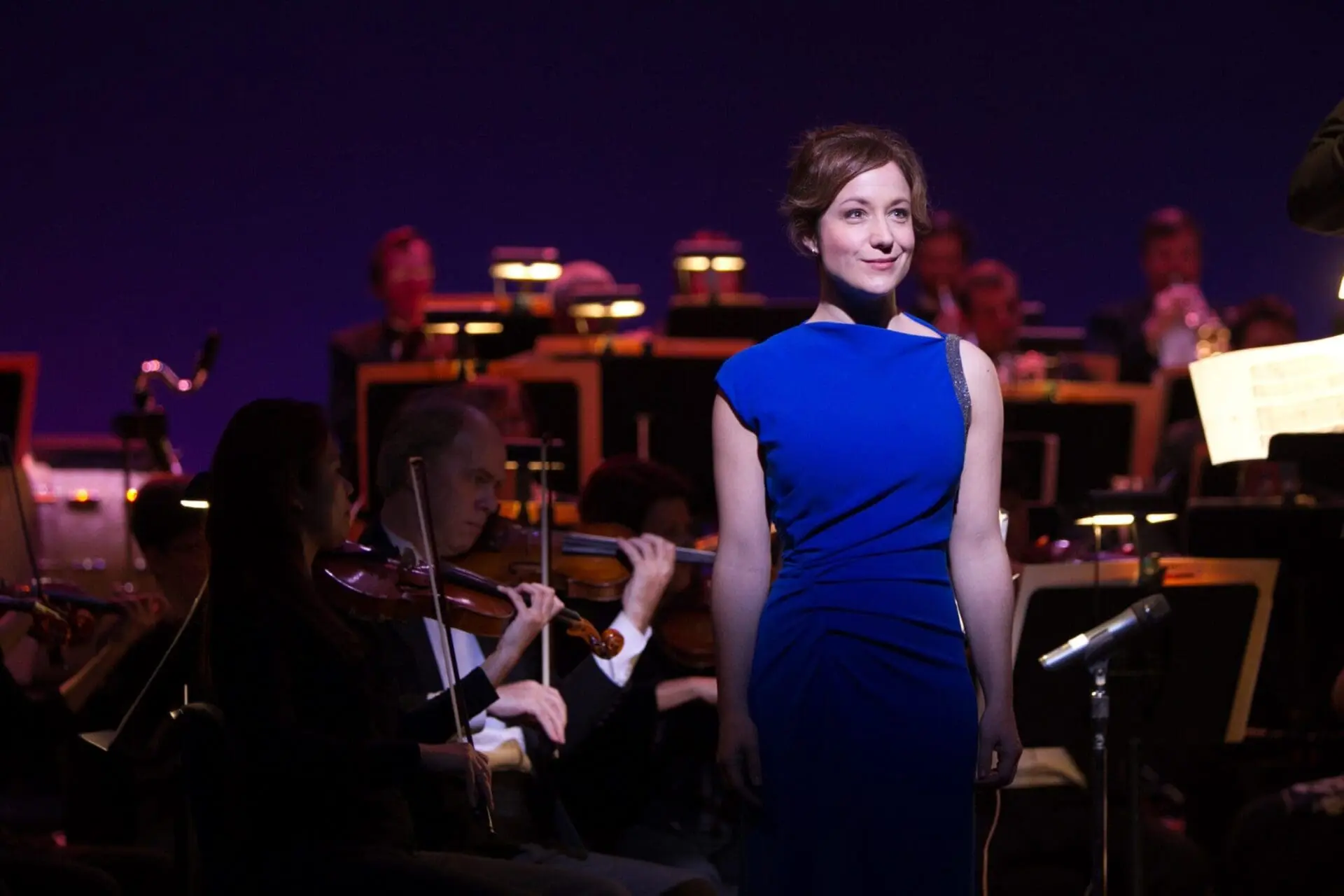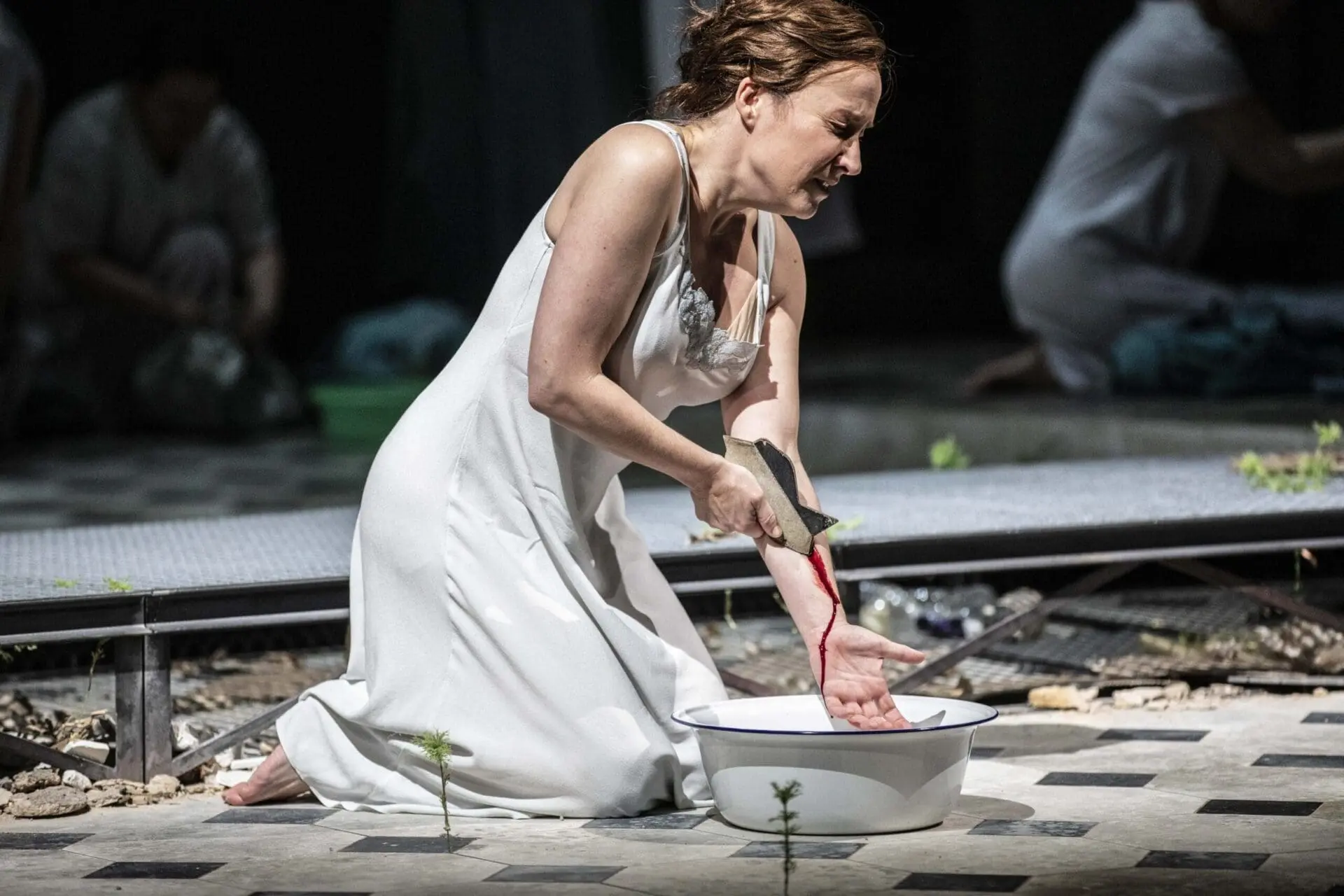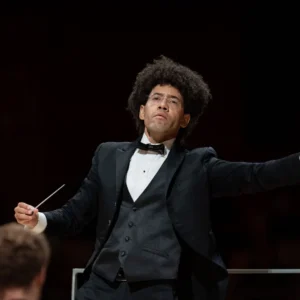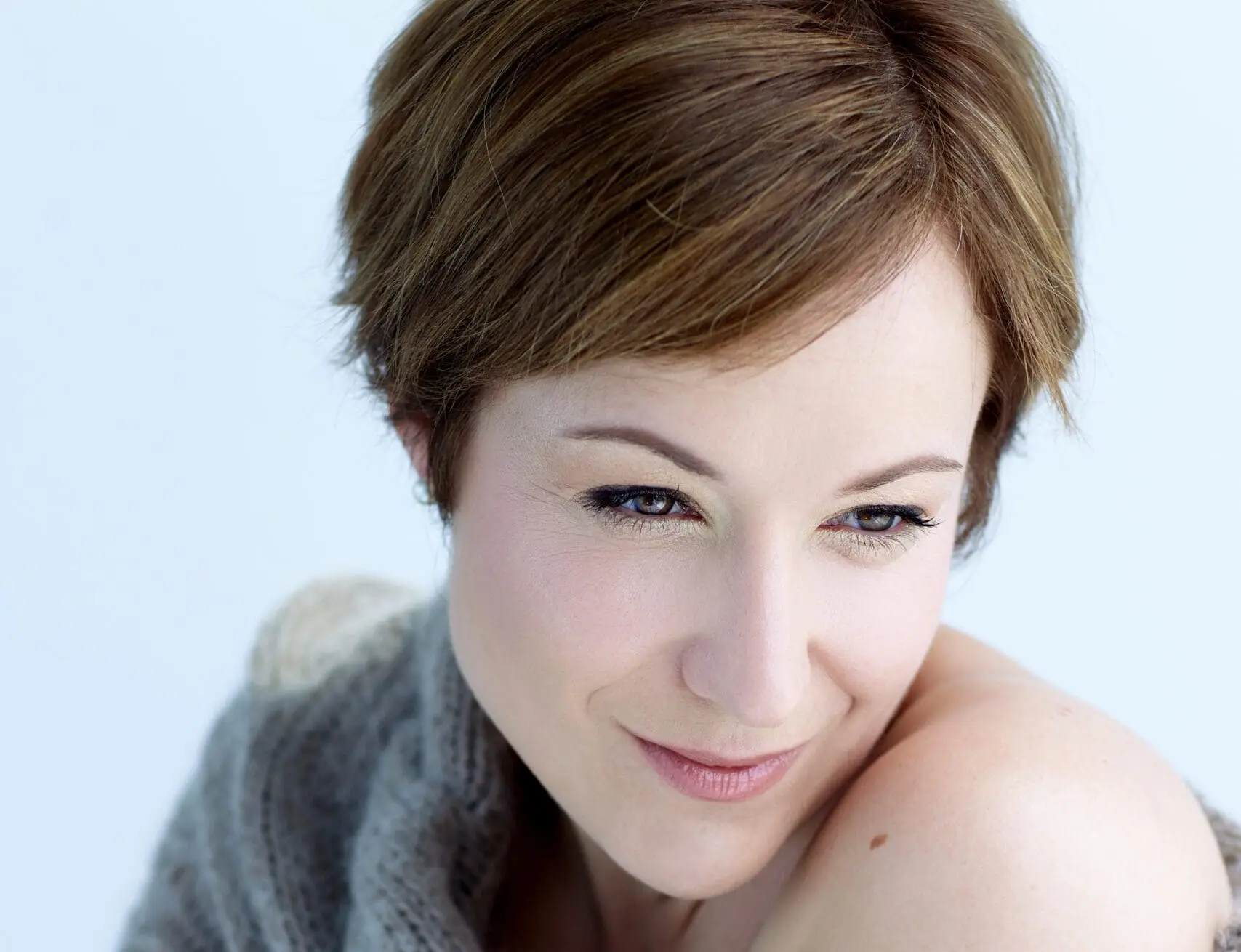The Artist of the Week is French-Canadian mezzo-soprano Julie Boulianne. She will be the mezzo soloist in Mozart‘s Requiem with Orchestre symphonique de Montréal from April 16th to 18th (tickets and info here).
Julie is known internationally for her vocal agility and expressive vocal power. This season marked the beginning of her residency with L’Orchestre national de Bretagne and her return to the Royal Opera House, Covent Garden to sing Nicklausse in Les contes d’Hoffmann. She is also making opera and concert appearances with Opéra Royal de Wallonie-Liège, the Chamber Orchestra of Europe and Québec Symphony Orchestra.
This week, Julie shares how she approaches new roles, the things she can’t live without while on the road and her love of coffee and dogs. Read on to find out more.
What/who inspired you to sing?
Well, there was a lot of singing in my family. Choir singing, but also amateur opera singers, pop singers… we just loved singing all together. Singing has always been a part of my life. And one day, I saw Cecilia Bartoli on the VHS tape of one of her recitals. She was doing all these coloraturas and it seems so much fun! I had to try, haha!
Favourite place?
My summer house in Lac St-Jean. The view is splendid, the water is nice and it feels like home.
If you weren’t a singer, you’d be?
A pharmacist? I love learning about interactions between molecules, I unexpectedly discovered that because I’m a singer. As I travel a lot for work, when I get sick I often have to figure out which medication is which in different countries. It’s better to know the molecules, the dosage and interactions to be safer. Singers weirdly end up knowing more about body chemistry, molecules and medications than most people.
What’s the strangest/funniest thing that has happened to you on stage?
I once launched myself into the air by swinging a very heavy iron during Cenerentola duet. I’m sure John Tessier remembers this “slipping on a banana” kind of moment. I think we cried for the whole rest of the duet.
What are you afraid of?
Singing and being on stage? Forgetting my music and entering in the wrong place… or cracking… I’m also afraid of sharks. I’m from the Jaws generation.
What was the first opera you ever saw?
Le Nozze di Figaro in Quebec City, with Russell Braun, Lyne Fortin, Christine Brandes and Michelle Sutton …among others. It was fabulous!
Are there more musicians in your family? If yes, who and what do they play/sing?
Yes, I have a cousin who’s a famous contralto, her name is Marie-Nicole Lemieux, lucky me!
Where did you go to school?
I have degrees from McGill University, Université de Montréal and Juilliard School of Music.
Where’s your favourite coffee shop?
In Lewes, East Sussex, there is a tiny coffee shop called Ground Coffee House. They have a good selection of beans, good coffee, and they put a lot of love in it. It’s also near the bus station which gets you to work every day when you work at Glyndebourne, which makes it the best coffee shop EVER.
What’s the luckiest thing that has ever happened to you?
I lost a small diamond, and I found it back months later in one of my socks (and I DO wash my socks, you know…)
What’s the downside of being an opera artist?
Making sure that your instrument always stays healthy. It’s pretty much a full-time job, because it’s always in the back of your mind. You’re never completely free.
What’s the best thing about being an opera artist?
Meeting and working with wonderful and talented people from all around the world. You basically have new colleagues every month. You get to not only visit great cities but get enough time to experience what is life like in these places.
Are you a cat person or dog person?
Dog. I love dogs so much! When I meet a dog on the street I always talk to it in French, and my husband says I look weird and scare the owners. We laugh a lot about it. In fact, the first words my husband learned in French were TRÈS GRAND PITOU. That says a lot.
What is the best advice you have ever been given?
Never stop never stopping. (I hope you get the reference, otherwise this sounds really lame.)
What is one thing that you cannot live without?
My morning routine which includes coffee, toast, reading the news, doing the crosswords and the sudoku of my newspaper. I think that’s my way of feeling at home everywhere I go. This and also traveling with my stuffed Papa Smurf.
Do you approach singing and/or upcoming projects differently today than you did at the beginning of your career?
Not really, it’s different for every project anyway. The mindset is always “do your best” or “do better than last time.”
The music industry is tough and filled with rejection. How do you cope? Does it get easier?
When I get bad news, I give myself a time period to be angry or sad or disappointed or to simply think about the reasons which led to the negative outcome. It can be an hour, a day. But I put a time limit to it. Then I move on. It does get better with time, but singing is still my way of making a living and I still need to get appreciated and therefore hired. But I always tell myself that, if I don’t sing anymore, I will be happy doing something else. I think it’s the best way to ease the burden.
Does singing help keep you young?
Yes, because it keeps you healthy (breathing, posture, good diet), and you also have constant variety in your life forcing you to develop new relationships, get used to new environments, constantly learn new music. Your social and memory skills are constantly required. You can never let yourself go in an easy routine, it keeps your curiosity alive and your mind opened.
Does your process change from role to role?
Totally. It depends on the language, the complexity of the music or the technical challenges, the history behind the piece and the character, the interest I have in the part, the reasons why I chose to perform it… I really don’t have a method. I need to love what I do, so I try not to force things. If I feel like singing the notes before learning what it means, why not? I don’t find it sacrilegious, as long as in the end you’re fully prepared to perform.
Are you a perfectionist?
Unfortunately and fortunately, yes.
LEARN MORE ABOUT JULIE BOULIANNE
VISIT HER WEBSITE

© Will Staples Photography
Popera with Opera Tampa

© Laurent Guizard
With Orchestre National de Bretagne

© Jean-Louis Fernandez
As Diane in Iphigénie en Tauride at The Metropolitan Opera
Mozart’s Requiem
Orchestre symphonique de Montréal

ORCHESTRE SYMPHONIQUE DE MONTRÉAL
CONDUCTOR: Rafael Payare
SOPRANO: Myriam Leblanc
MEZZO-SOPRANO: Julie Boulianne
TENOR: Joé Lampron-Dandonneau
BASS: Robert Gleadow
OSM ORGANIST-IN-RESIDENCE: Jean-Willy Kunz
OSM CHORUS
CHORUS MASTER: Andrew Megill
The dramatic intensity and emotional candour expressed in Mozart’s Requiem contribute to the fascination this work continues to arouse more than 200 years after it was written. Bach similarly approaches the theme of death through an aura of contemplative humanism in the motet Jesu, meine Freude, in which a serene vision of the afterlife is offered. The genius of both Bach and Mozart will be celebrated by the Orchestra and the OSM Chorus.
Opera Canada depends on the generous contributions of its supporters to bring readers outstanding, in-depth coverage of opera in Canada and beyond.
Please consider subscribing or donating today.














